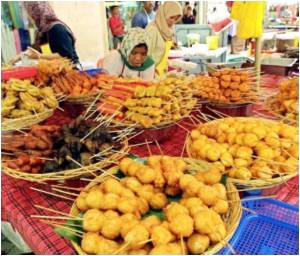
Lengou, 32, and his wife came here with their two-year-old twin daughters in October, one family among 40 chosen from 12 different regions around this central African country for the project.
Located in the midst of a grassy savannah, Nkouo is an attractive collection of 50 new homes, all with electricity and drinking water.
The village is also served by a medical centre with three treatment rooms, has a primary school and play areas -- all laid on by the state.
Congo's President Denis Sassou Nguesso himself formally inaugurated the village last month, a sign of how much the government is investing in the project.
Lengou, a specialist in rural development, knows the land is good.
Advertisement
"In the past, I excelled in growing manioc (cassava) and sweet potato, but lacking support, I didn't have good results," he added.
Advertisement
Nkouo is the first of three agricultural villages the government plans to develop at a cost of 13 billion CFA francs (20 million euros, 27 million dollars), Agricultural Minister Rigobert Maboundou explained.
And the government, as well as funding the construction of villages will also buy up some of its produce, he added. They used the Socomod (Societe congolaise de modernisation) a Congolese subsidiary of Israel's LR Groups.
"Nkouo is going to produce two million kilos (4.4 million pounds) of manioc per season...," said Socomod chief Etrog Yehushua.
It would thus contribute to food self-sufficiency in the Pool Nord, region where it is located, and even in Brazzaville, he added.
In addition, the villagers would also have 40 barns, a warehouse and a refrigerated storage, said chief of works Jean Jacques Bouya.
"Each farmer's family has received 792 laying hens and two hectares (nearly five acres) to farm," he added.
But they will be expected to meet their targets: eight million eggs a year from the hens they have received.
The hope is that what for the moment is an experimental model will be extended across Congo so that the country itself, rather than just individual regions, can become self-sufficient.
Currently, Congo has to spend 130 billion CFA francs (198 million euros) a year to import food to feed its 3.6-million population.
A recent report from the UN's Food and Agricultural Organisation noted: "The country does not produce a significant amount of cereals; with imports covering approximately 95 percent of total cereal utilization requirements, mainly through commercial channels."
A July report by the UN's World Food Programme noted that nearly one in three children under five suffered from chronic malnutrition.
The government, which has an estimated budget of 4.5 billion euros, plans to invest just under 61 million euros a year over the next four years towards making the country self-sufficient in food.
The project at Nkouo then, is a crucial first step in that project -- as Lengou knows only too well.
"I am quite perfectly aware that our fellow citizens expect a lot from us," he said.
Source-AFP















